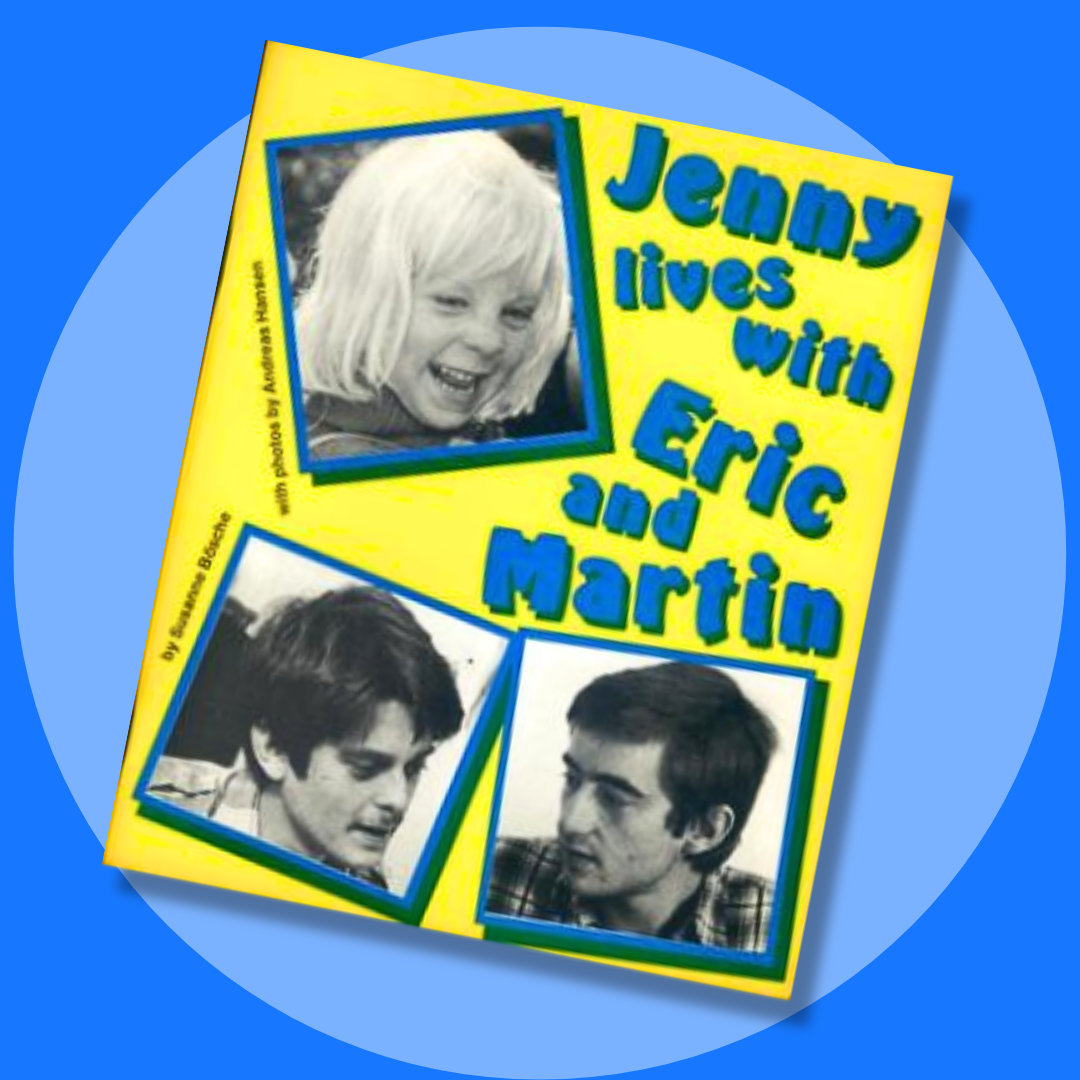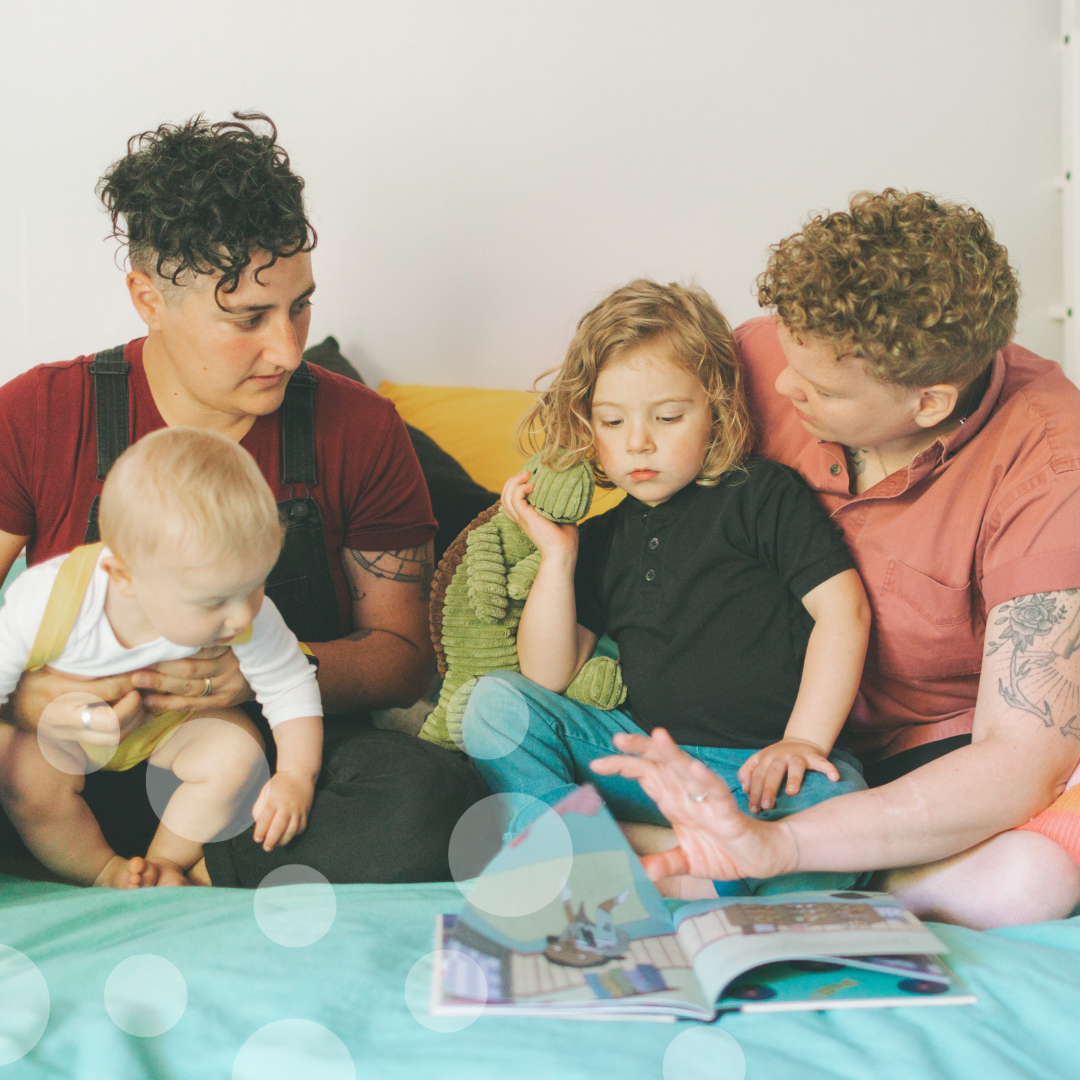Marking 20 Years Since the Repeal of Section 28
As we mark 30 years since the repeal of Section 28, a divisive piece of legislation that aimed to restrict the "promotion" of homosexuality in schools, we reflect on the vital role that inclusive storytelling plays in our society. Today we celebrate the importance of young people having access to stories and books that reflect their diverse backgrounds, offering a positive representation of LGBTQ+ individuals and rainbow families.
It was a children’s storybook that sparked the inception of Section 28 and left an indelible mark in the history books on the struggle for LGBTQ+ acceptance. ‘Jenny Lives with Eric and Martin’ was the simple illustrated children’s book that started it all. Written by Susanne Bosche and initially published in Copenhagen in 1982, this children's book found itself at the centre of a maelstrom that would ultimately lead to the creation of Section 28 of the Local Government Act in the United Kingdom.

The Birth of a Controversy
This Danish children's book, initially titled ‘Mette bor hos Morten og Erik’, introduced readers to Jenny, a little girl living with her fathers, Eric and Martin. It portrayed their everyday life – such as going to the laundrette and planning a surprise birthday party - and the love and care they provided for Jenny. The book was well-received in Denmark when it was first published in 1982 and contributed to the ongoing conversation about diverse family structures in the country, however, in the United Kingdom, it was seen as a threat to the existing societal norms. Conservatives at the time saw it as an opportunity to restrict what they considered the "promotion" of homosexuality, partially motivated by a wave of homophobia in Britain that had been spurred on by the public's growing fear of HIV/AIDS. This outrage culminated in the framing of what would become Section 28 of the Local Government Act.
The introduction of Section 28
Section 28, or "Clause 28" as it was often referred to, explicitly prohibited local authorities from intentionally promoting homosexuality or publishing materials that aimed to promote homosexuality. The phrase "pretended family relationship" was introduced to cover books like ‘Jenny Lives with Eric and Martin’. This curious term allowed for a legal defence that, while it encouraged young people to explore their desires without boundaries, did not explicitly endorse same-sex relationships. The repercussions of Section 28 would echo through British society, casting a shadow over LGBTQ+ individuals and organisations for years to come.
Empowering Through Literature
The impact of literature on young minds cannot be overstated. Books serve as windows into different worlds, allowing readers to step into the shoes of characters who may be very different from them. These literary experiences can shape a child's perspective, instilling empathy, understanding, and appreciation for diversity from an early age.

For LGBTQ+ youth and children from rainbow families, encountering relatable characters in books can be a profoundly empowering experience. These stories offer young readers a sense of belonging, a space where they see their own lives and experiences reflected positively. It also sends a message that love and family are universal, regardless of one's sexual orientation or gender identity.
It's essential to recognise that representation in children's literature extends beyond characters' identities. These books also introduce young readers to different types of families, experiences, and relationships. By exploring diverse narratives, children gain an appreciation for the rich tapestry of human experiences and learn the importance of embracing others for who they are.
Recommended Books for Inclusive Libraries
Creating inclusive libraries is a vital step in fostering an atmosphere of acceptance and diversity. Schools and educators play a key role in curating collections that reflect the experiences of all their students. At Diversity Role Models we signpost educators to the Seven Stories ‘Read with Pride’ reading list that champion children and young people’s access to books that celebrate what makes us unique and proud to be ourselves.
Reading with Pride is a collection of 60 LGBTQ+ titles which explore love, compassion, identity, curiosity, and the beauty of our differences. The stories present LGBTQ+ and non-traditional families compassionately, some of which explore young people's experiences and identities, as well as queer history and reference books, and are divided into age-appropriate sections so that teachers, educators, parents and carers can easily identify the most suitable books for their young people.
Celebrating Diversity, Embedding Inclusion
As we celebrate the progress made in LGBTQ+ rights and acceptance over the past 20 years, we emphasise the importance of inclusive stories for young people. Stories have the power to shape minds, instil empathy, and create a more accepting society. By providing children with books that reflect diverse backgrounds and offer a positive representation of LGBTQ+ individuals and rainbow families, we contribute to a brighter, more inclusive future.

By adding recommended books to school libraries, we can ensure that all students have access to stories that celebrate love, family, and identity in all their beautiful forms. These books not only empower LGBTQ+ youth but also educate all young readers about the rich diversity of the world around them. Let's continue to champion these voices and stories, ensuring that literature remains a beacon of inclusion and acceptance for generations to come.
For more information about LGBTQ+ inclusive education resources and diverse reading books suitable for Primary and Secondary curriculum, please get in touch
